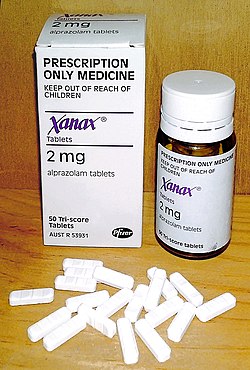Understanding Xanax: Uses, Risks, and Mental Health Impact

Introduction to Xanax
Xanax, the brand name for alprazolam, is a medication primarily prescribed to treat anxiety and panic disorders. It belongs to a class of medications known as benzodiazepines, which work by affecting chemicals in the brain that may be unbalanced in people with anxiety. Given the increasing prevalence of anxiety disorders globally, understanding the uses and potential risks associated with Xanax is crucial for both patients and healthcare professionals.
Current Usage and Prescribing Trends
As of 2023, Xanax remains one of the most prescribed drugs for anxiety in the United Kingdom and other countries. According to NHS data, prescriptions of benzodiazepines, including Xanax, have risen by nearly 10% over the past year as mental health issues have surged, partly due to the stressors related to the COVID-19 pandemic. This medication is often preferred due to its fast-acting properties, providing significant relief to those suffering from acute anxiety episodes.
Health Risks and Addiction Potential
Despite its effectiveness, Xanax is not without risks. One of the major concerns surrounding its use is the potential for addiction and dependence. Health experts warn that prolonged use can lead to tolerance, meaning that larger doses may be needed to achieve the same therapeutic effects. According to the National Institute for Health and Care Excellence (NICE), patients should ideally limit the use of Xanax to short-term management of anxiety to mitigate these risks.
Moreover, abrupt cessation of Xanax can result in withdrawal symptoms, which can be severe and include seizures, tremors, and rebound anxiety. It is important for users to consult with healthcare professionals before stopping the medication to ensure a safe and gradual reduction in dosage.
Significance for Mental Health Treatment
The importance of Xanax in the treatment of anxiety disorders cannot be understated, as it provides crucial short-term relief for many individuals who struggle with debilitating symptoms. However, the increasing awareness of its addictive nature underscores the need for careful prescribing and monitoring by medical professionals.
Conclusion
In conclusion, while Xanax plays a significant role in the treatment of anxiety and panic disorders, its potential for addiction and withdrawal symptoms necessitates caution. Healthcare providers and patients must work closely to balance the benefits of using Xanax with the associated risks. As mental health awareness grows, it becomes imperative for those who are prescribed Xanax to remain informed about their medication, fostering a responsible approach to its use in treating anxiety disorders.









